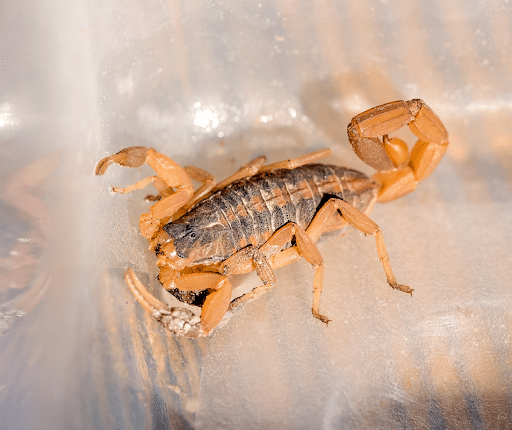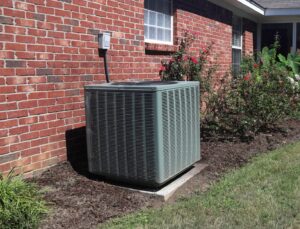How to Get Rid of Scorpions: A Homeowner’s Guide

Scorpions are an unwelcome guest for homeowners, especially in the Southwestern United States. While scorpion stings are rarely life-threatening, they are painful and concerning. Fortunately, effective ways exist to eliminate these arachnids and keep them out of homes.
This guide will walk you through identifying scorpions, implementing prevention methods, and taking action to eliminate existing infestations.
Identifying Scorpions in Your Home
Before tackling a scorpion problem, it’s important to properly identify these creatures. Scorpions are arachnids, closely related to spiders, and have some unique features:
Physical Characteristics
Most scorpions in the United States are between one and five inches long. They have a pair of pincers, four pairs of legs, and a long tail with a sharp stinger. Depending on the species, their color ranges from light yellowish-tan to dark brown. Scorpions are poisonous, but few species have venom that can kill humans.

Habitat and Behavior
Scorpions are nocturnal creatures, preferring to hide during the day and come out at night to hunt. They are found in various habitats, including:
- Under rocks, logs, and debris
- In tree bark and woodpiles
- Around swimming pools and irrigation systems
- In attics, crawl spaces, and closets
Scorpions are attracted to moisture and prey on insects, spiders, and other scorpions. You might notice dismembered bodies of roaches or other insects as a sign of scorpion activity.
Prevention: Keeping Scorpions Out of Your Home
The best way to deal with scorpions is to prevent them from entering your home in the first place. Here are some effective prevention methods:
Seal Entry Points
Scorpions squeeze through tiny cracks and crevices. To keep them out, it’s important to meticulously examine the structural integrity of your home, focusing on areas where they gain entry. Start by inspecting the exterior of your home for gaps and sealing them with caulk.
Install weatherstripping around doors and windows to block potential entry points. Don’t forget to repair damaged screens on windows and doors, as you might overlook entryways that scorpions exploit.
Eliminate Food Sources
Reducing scorpion’s food supply by managing pest populations is a strategic preventative measure. Use insecticides or natural repellents to control other pests like crickets and roaches that scorpions feed on.
Removing piles of leaves or debris where insects might hide is important. Consider switching to yellow outdoor lighting, which attracts fewer insects and indirectly discourages scorpions from hanging around your property.
Modify the Habitat
Creating an unfavorable environment for scorpions around your property will further discourage them from nesting or invading. Make it a routine to remove piles of wood, rocks, or debris from around your home, as these serve as ideal hiding places for scorpions.
Maintain a neatly manicured lawn with short grass and well-trimmed bushes to eliminate potential shelter. When storing firewood, keep it away from the house and elevate it off the ground to reduce scorpion harborage sites. Additionally, fix any leaky pipes or faucets, as eliminating moisture sources will make your property less attractive to these arachnids.
DIY Methods to Get Rid of Scorpions
If you’re already dealing with scorpions in your home, you can try several DIY methods. Taking a hands-on approach usually resolves minor infestations effectively.
Glue Traps
Glue traps are an effective way to catch scorpions and monitor their activity. Place these traps along baseboards, in corners, and near entry points. Check and replace them regularly, making sure they remain effective.
Diatomaceous Earth
This natural substance is an effective scorpion killer. Food-grade diatomaceous earth works by dehydrating scorpions when they come into contact with it. Sprinkle lightly in areas where scorpions travel, such as along baseboards, under appliances, and attics, to provide a long-term solution.
Natural Repellents
Some essential oils may help repel scorpions, integrating natural methods into your pest control strategy.
- Cedar oil, known for its repellent properties, is a deterrent to scorpions when applied correctly.
- Lavender oil, while aromatic, acts as a scorpion repellent due to its strong scent.
- Cinnamon and peppermint oils create a formidable barrier when used in combination. Mix a few drops of these oils with water in a spray bottle and apply around entry points and problem areas to drive scorpions away.
Pesticides
For more severe infestations, you might consider using liquid pesticides specifically formulated for scorpions. Always follow the label instructions carefully and consider hiring a professional for application to ensure safety and effectiveness.
Professional Scorpion Control
While DIY methods are effective, sometimes professional help is necessary, especially for severe infestations. Professional pest control services offer specialized solutions tailored to your specific needs.
Experts will conduct thorough inspections to identify all problem areas around your home. They use targeted treatments using professional-grade products that are more effective than over-the-counter solutions. Additionally, ongoing prevention and monitoring services are necessary for long-term scorpion control, making professional help a viable option.
When choosing a pest control company, look for one licensed, bonded, and insured in your state. This not only assures quality service but also guarantees regulatory compliance and professionalism.
What to Do If a Scorpion Stings You
While prevention is key, knowing what to do if a scorpion sting occurs is important. Understanding the first aid steps prevents unnecessary panic.
To prevent infection, begin by washing the sting area thoroughly with soap and water. Next, apply a cold compress to reduce pain and swelling, which will help alleviate immediate discomfort.
If possible, keep the affected area elevated to decrease swelling. You may also take over-the-counter pain relievers if needed, but follow the package directions carefully for proper dosage.
Seek immediate medical attention if severe symptoms occur, such as difficulty breathing, muscle spasms, or seizures. While most scorpion stings in the U.S. are not life-threatening, it’s always better to err on the side of caution. Rapid response prevents complications and ensures swift recovery.
Final Thoughts About Getting Rid of Scorpions
Dealing with scorpions is challenging, but you can effectively manage and prevent infestations with the right approach.
Combining habitat change, exclusion methods, and targeted treatments makes it possible to create a scorpion-free environment. Remember that persistence is key — it may take time and consistent effort to fully address a scorpion problem.
If you live in scorpion-prone areas, regular monitoring and maintenance is necessary. If DIY methods aren’t providing the desired results, don’t hesitate to call in professional help. With patience and the right strategies, you can reclaim your space from these unwanted arachnid visitors and enjoy a safer, more comfortable home.
FAQs About Getting Rid of Scorpions
What’s the most effective scorpion repellent?
Unfortunately, no repellent is 100% effective against scorpions, but some methods and products are known to be more effective than others.
Diatomaceous earth, essential oils, commercial repellents, vinegar, or essential oil solutions are effective repellents. Sticky traps and boric acid are also effective repellents, and sticky traps can also help to track their movements.
Be sure to regularly apply the repellents you choose to use. Repellents should be used in combination with other removal tactics to fully get rid of scorpions in your home.
For severe infestations, I recommend calling a professional pest control service.
Are scorpions hard to get rid of?
Scorpions can be challenging to get rid of completely. They can survive months without food and can flatten their bodies to hide in tiny cracks. They’re often hard to spot because they’re nocturnal and can thrive in varied environments.
To get rid of scorpions, I recommend a comprehensive approach combining repellents, deterrents, habitat modification, and sealing entry points.
Can I kill scorpions with borax?
Borax can be used as part of a scorpion control strategy. While it can kill them, it’s not as fast acting as other methods. Borax works by dehydrating the scorpion when ingested or through contact with their exoskeletons.
You can sprinkle borax powder where they are likely to travel, focusing on entry points, cracks, and crevices. Remember that borax can be harmful if ingested by pets or humans.






Leave a Reply